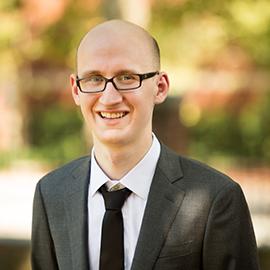The Complex Relationship Between Income and Smoking
By Gita Smith
 Economists have long studied how personal income and relative deprivation affect social outcomes such as education, bullying/victimization, and health.
Economists have long studied how personal income and relative deprivation affect social outcomes such as education, bullying/victimization, and health.
Are Trade Sanctions Credible or Are They Cheap Talk?
By Gita Smith
It is known that imposing sanctions against a country can restrict its ability to do business, putting political and economic pressure on the target country. But can sanctions also adversely affect the imposing country?
Complex Job Tasks Improve Problem Solving Skills
By Gita Smith
Job task complexity plays a central role in the development of problem-solving skills by workers, according to research by Haizheng Li, a faculty member of Georgia Tech’s School of Economics. Along with co-author Qinyi Liu at University of International Business and Economics, Beijing. Liu received her PhD in Economics from Georgia Tech in 2018 and Li was her advisor. Li provides new empirical evidence on skill formation via job tasks. The paper focuses on how a worker becomes more productive through learning-by-doing during on-the-job training.
Location Choices of Undocumented Migrants: Does Access to Higher Education Matter
By Gita Smith
Is access to higher education an important consideration when undocumented migrants choose where they want to live in the United States? Usha Nair-Reichert, Associate Professor of Economics at Georgia Tech explores this question in a study, “Location Choices of Undocumented Migrants: Does Access to Higher Education Matter?”
Multidimensional Economic Deprivation during the Coronavirus Pandemic: Early Evidence from the United States
Many Americans reported economic hardships even early in the COVID-19 pandemic
Almost 25 percent of U.S. respondents experienced two of four types of deprivation, rising to over 37 percent among Hispanic respondents
Significant proportions of U.S. respondents were experiencing economic hardships even early in the COVID-19 pandemic, with Hispanic citizens being particularly affected, according to research by Shatakshee Dhongde at the Georgia Institute of Technology, U.S., publishing in the open-access journal PLOS ONE on December 16, 2020.
The Impact of Family Co-residence and Childcare on Children’s Cognitive Skill
Do young children develop improved cognitive ability (reasoning, learning, remembering, for example) when living in a household with both grandparents and parents? And what role does assigning childcare responsibility (grandmother vs. father, or all adults) play in the ability to learn?
Haizheng Li at Georgia Tech’s School of Economics, and two co-authors, investigated the impact of multigenerational family co-residence and shared childcare responsibility on a child’s cognitive development.
Jonathan Samon
Jonathan Samon graduated with his B.S. in Economics in 2001 and now serves as General Counsel for eProdigy Financial, LLC, which is involved in alternative finance for small businesses.
Nicholas Pinto
What Georgia Tech and the School of Economics Taught Me:
It taught me how to interpret numbers and data in a way that makes sense. There can be conflicting research in the area of education, but from my economics background, I can analyze the methods researchers used to obtain their results. It helps me make informed decisions about my future practice.

 By Gita Smith
By Gita Smith